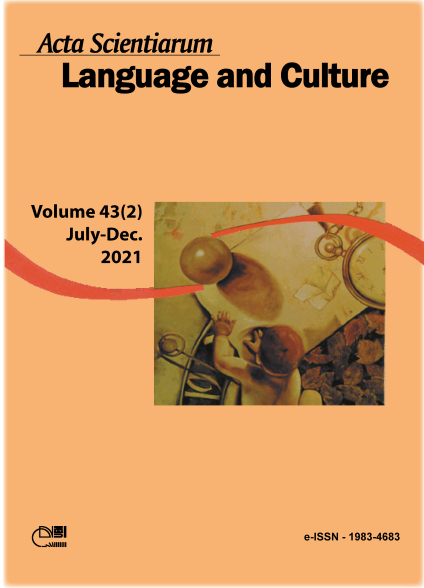Identity multiplicity in ‘Galileia’, by Ronaldo Correia de Brito: homosexual representation x sertaneja representation
Abstract
As part of the research carried out by the research group NENIN - Nucleus for Studies in Neoregionalism, Imaginary and Narrativity, the research aims to analyze the relationship between the homosexual identity of the character Davi and the country identity pertaining to his family in the literary work ‘Galilee’, by Ronaldo Correia de Brito. According to Michael Pollak (1992), throughout life we build an image of ourselves and others representing what we believe we are. However, for homosexual subjects, the creation of this image often ends up having the intention of hiding this particularity. According to Trevisan (2000), assuming this identity category is assuming all the negative charge that accompanies it. It was found that the idea of belonging to a group related to the character David, in this case his own family, does not contrast so much with his homosexual individuality, because, even though it does not correspond to what this group imagines for him, it ends up bringing them together through David's keeping it a secret, which is a common custom in that family. However, the transformations in the sertanejo scenario, as well as changes in customs in the region, may have reduced this opposition. It is a qualitative research based on theorists such as Brito (2017), Pollak (1992), Ricoeur (2007, 2014) Trevisan (2000) and analysis of the literary work in question.
Downloads
DECLARATION OF ORIGINALITY AND COPYRIGHTS
I Declare that current article is original and has not been submitted for publication, in part or in whole, to any other national or international journal.
The copyrights belong exclusively to the authors. Published content is licensed under Creative Commons Attribution 4.0 (CC BY 4.0) guidelines, which allows sharing (copy and distribution of the material in any medium or format) and adaptation (remix, transform, and build upon the material) for any purpose, even commercially, under the terms of attribution.
Read this link for further information on how to use CC BY 4.0 properly.




















6.png)









